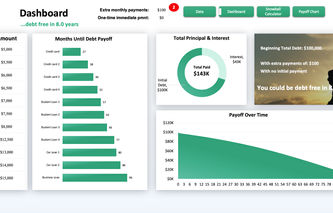You don’t need a college degree to get an exciting job that pays well. There are plenty of blue-collar jobs that will give you the chance to be outdoors, work with a team, and learn some impressive skills —without stepping foot near a computer desk.
This article will tell you—
The blue-collar definition.
Blue-collar jobs that pay well.
Blue-collar job examples.
The top high-paying blue-collar jobs.
White-collar jobs vs. blue-collar jobs.
Blue Collar Meaning
Blue collar refers to the type of work that usually involves manual labor and physical tasks across a wide range of industries.
The term blue collar comes from the 20th century when workers would often wear dark blue uniforms when getting their hands dirty, so they wouldn’t need to spend their low wages on regularly washing their clothes.
What is a blue collar worker?
A blue-collar worker is someone whose job usually involves performing manual tasks in industries, such as:
Farming
Maintenance
Manufacturing
Construction
Public safety
Stereotypes about blue-collar workers being unskilled exist because they can usually enter their industry without a degree. But in fact, many have to attend a technical school or a specialist program to learn the necessary skills.
Others have the opportunity to learn on the job or complete apprenticeships to learn the ropes.
Blue-collar workers have the chance to work in a bunch of different settings, from working outside in private gardens to noisy warehouses—so if office work sends you to sleep, this could be the right direction for you.
What Are The Highest Paying Blue Collar Jobs?
The highest-paid blue-collar jobs usually require more advanced skills, such as electrical and mechanical knowledge.
A blue-collar worker salary can vary depending on the field you go into—many get paid hourly or based on the number of jobs they complete, like mechanics and plumbers.
To give you a better idea of the highest paying jobs, here are the median annual salaries for some of the most popular blue-collar jobs:
JOB | SALARY |
|---|---|
Police officer | $66,020 |
Aircraft mechanic | $65,380 |
Boilermaker | $64,290 |
Electrician | $60,040 |
Plumber | $59,880 |
Wind turbine technician | $56,260 |
Firefighter | $50,700 |
Roofer | $47,110 |
Auto mechanic | $46,880 |
Construction worker | $37,520 |
*Figures are based on the US Bureau of Labor Statistics from 2021 data.
Are there any blue collar jobs that pay over $100,000?
If you’re looking for blue-collar jobs that pay 100,000 dollars a year, your best bet is going for managerial positions or roles that require more advanced skills.
The types of blue-collar jobs that pay the big bucks include:
Police officers and detectives
Oil rig workers
Construction managers
Airline pilots
Electricians
If you want to aim even higher, here are some more jobs that make 200k without a degree.
What Are The Best Blue Collar Jobs?
The best blue-collar jobs can depend on your preferences, educational background, and salary expectations. For example, those without a college degree will probably prefer roles that offer on-the-job training or apprenticeship programs.
If you’re looking for high salaries, the best blue-collar jobs are:
Police officers
Aircraft mechanics
Engineers and electricians.
Boilermakers
If you’d rather be getting some vitamin D and work outdoors, the best blue-collar jobs for you could involve construction, roofing, or wind energy.
And if you want to put your physical prowess to the test, try getting a job as a firefighter, police officer, or bricklayer.
Check out more high-paying jobs that don’t require a college degree.
15 Examples of Blue Collar Jobs
Whether you’re an outdoorsy person or you just need some fast cash, here are our top picks for the best blue-collar jobs—
1. Electrician
Annual salary: $37,020–$99,000
Without electricity, we’d have no lighting, kitchen appliances, or AC to escape the sticky summer heat. So you’ll never be out of a job.
You’ll spend your energy installing and maintaining wiring and lighting systems. And you’ll need a steady hand as you’ll be using power tools to fix and test electrical systems.
To avoid any nasty shocks, you’ll also need to stay up-to-date with the National Electric Code (NEC) and any other safety regulations.
Requirements: At a minimum, you’ll need a high school diploma or GED to get started. But to guarantee a job, you'll need to take part in an electrician training program or apprenticeship and get a state license.
2. Police Officer
Annual salary: $40,420–$105,540
Unfortunately, being a police officer isn’t limited to breaking down doors or exciting high-speed car chases (Law & Order lied to us)—although your job won’t be completely drama-free.
You’ll be tasked with catching criminals, enforcing the law, and preventing crime. This can involve investigative work and monitoring any suspicious activity.
There are also duties you don’t see on TV, like maintaining safe traffic, participating in safety programs, and crashing underage parties.
Requirements: Most police departments will want you to have a high school diploma under your belt. Some departments are happy to offer reimbursements to help you get a degree in criminal justice, sociology, or social work to help you advance in your career.
3. Power Plant Operator
Annual salary: $49,680–$125,340
Most of our energy comes from power plants—and who keeps that energy flowing? That would be you.
The US accounts for about 16% of the world’s energy consumption—and you’ll be responsible for keeping everything running smoothly to stay ahead of high demands.
This involves operating machinery, monitoring energy flow, and testing equipment to make sure everything is working properly, so you don’t have any blackouts on your hands.
Requirements: With all that pressure, a degree in engineering or physical sciences will give you a big boost. Nuclear power reactor operators will also need a license—and you could be subject to a background check or regular drug and alcohol tests.
4. Firefighter
Annual salary: $29,030–$81,640
If you spent your childhood running around with a red helmet and megaphone (which your parents loved)—why not make your role-playing a reality?
The megaphone might be missing, but you’ll be working with pumps, hoses, extinguishers, and other tools to put fires out and make sure the public is kept safe.
With potential medical emergencies and dangerous situations, you’ll also need to take part in plenty of fire training and safety drills.
Requirements: As well as having enough physical stamina to run through a burning building, you’ll also need a high school diploma and some type of medical training (like an EMT certification).
5. Farmer
Annual salary: $38,200–$126,330
Farming isn’t for everyone—but hay, if you like the outdoors and don’t mind getting your hands dirty, it could be the legen-dairy career you’ve been looking for.
Depending on the type of farming, your routine could involve growing crops or taking care of livestock to make sure everything is high quality.
You’ll also need the know-how to track weather conditions and diseases that could affect your crop yield or animal health. Understanding soil and climate is also key to boosting your profits.
Requirements: To get into the field, you’ll need a high school diploma and experience working in the farming industry. A degree in agriculture, natural resources, and business will also give you the tools for success.
6. Landscaper
Annual salary: $24,170–$47,630
Calling all green-fingered folks! If the idea of working in a gloomy office cubicle is your idea of a bad joke, working as a landscaper might be just the thicket.
Come rain or shine, you’ll be in charge of mowing, raking, weeding, pruning, and trimming bushes. As well as keeping nature in check, you could also be installing sprinklers and outdoor lighting.
Be ready to take on all four seasons, as you’ll be spending most of your time outdoors—in parks, gardens, golf courses, and other landscaping areas.
Requirements: Being a one-trick peony won’t fly in landscaping—you’ll need a high school diploma and enough experience to understand how to use a range of tools, like lawnmowers and hedge trimmers.
7. Aircraft Mechanic
Annual salary: $38,700–$100,860
If you’ve got a good eye for mechanical systems and are interested in the aviation industry—why not spread your wings and set your sights on aircraft mechanics?
You’ll have to get your head out of the clouds, as you’ll be in charge of repairing and maintaining the aircraft's structural systems while scheduling regular updates.
And it’s not just airplanes you’ll be working on—you can also apply your aircraft knowledge to helicopters, jets, and even fighter jets.
Requirements: There’s no winging it when it comes to keeping planes in the sky. You’ll need to graduate from an FAA-approved Aviation Maintenance Technician School or complete the Joint Service Aviation Maintenance Technician Certification Council training program.
8. Auto Mechanic
Annual salary: $29,010–$75,100
If you’re not ready to take off in the aviation industry, you can keep your feet firmly on the ground as an auto mechanic.
You’ll spend your shifts working with cars every day, so you’ll be no stranger to auto engines and complex electrical systems. You’ll use your expertise to repair, replace and maintain all the car parts (that nobody else knows the name of).
And it’s not just cars you’ll be dealing with—you’ll also be there to give customers advice while deciphering the strange ticking noise they’re describing over the phone.
Requirements: As well as knowing a thing or two about cars, you’ll need a high school diploma and a decent amount of experience. Getting the Automotive Service Excellence (ASE) certification will also drive up your chances of landing the job.
9. Construction Worker
Annual salary: $28,660–$62,590
Blue-collar jobs are great for those who hate sitting at a computer all day—and you can’t get more hands-on than working in construction.
Don’t be mistaken into thinking you’ll be just sitting around with your team drinking coffee and biscuits. Yes, that’s a perk of the job, but you’ll also be putting up scaffolding, using heavy machinery, digging trenches, and building safe structures.
There’s certainly no shortage of physical activity—but it’ll also test your brain power as you work with blueprints and make sure construction projects run smoothly.
Requirements: This is one of the most popular blue-collar jobs with no experience as entry-level positions usually only ask for a high school diploma. But if you really want to nail a job in construction, a technical diploma or experience in electricity or plumbing will give you a leg up.
10. Truck Driver
Annual salary: $31,252–$87,723
There’s nothing like hitting the highway, music blasting, windows down, with nothing but the open road—until boom, you’re stuck in traffic for two hours.
Unlike the unpredictability of the road, your duties are pretty consistent, and will usually involve loading, transporting, and unloading large amounts of cargo as safely as possible.
And you’ll need to perfect your playlist as you’ll be driving long distances—which could mean early mornings and late nights (so perfecting that coffee order isn't a bad idea either).
Requirements: It goes without saying that having a driving license and a clean driving record is key to landing this job. You’ll also need a Commercial Driver’s License (CDL) and a high school diploma.
11. Carpenter
Annual salary: $31,880–$80,940
We’ve all experienced that wobbly table at the restaurant, or the chair that collapsed the moment you sat down. Instead of complaining (or getting a bruised bottom), you can set things right.
You’ll leave no screw loose as you build, install, and repair wooden structures—which could cover everything from furniture and doors to a secret closet under the stairs.
But to keep one step ahead, you’ll need to understand wooden properties and carpentry materials and to know how to work with blueprints and sketches.
Requirements: After getting a high school diploma, doing an apprenticeship or going to a technical school with associate degrees in carpentry will set you on the right track.
12. Cook
Annual salary: $32,474–$91,000
Most people would love to be surrounded by food all day—but if you’ve mastered the art of seasoning a steak, or cooking rice for the perfect amount of time, you could make this a reality.
You’ll give customers something to taco ‘bout by preparing and cooking meals while paying attention to quality and presentation. This involves following recipes and keeping the kitchen clean and organized to meet high sanitation standards.
And if you don’t fancy the pressure of a restaurant kitchen, you can also find jobs in hotels, private households, or schools (if you don’t mind being surrounded by tons of hungry teenagers).
Requirements: A flair for cooking is always handy, but you’ll also need a high school diploma and preferably certification in food handling. Attending a culinary school will also help you out (check out the courses offered by The American Culinary Federation).
13. Plumber
Annual salary: $36,700–$99,920
Becoming a plumber means saying goodbye to all the bills you’ve been charged for leaky pipes and blocked drains (and no more cold showers, either).
Of course, it’s not just your own toilet you’ll be fixing—you’ll also be using blueprints and specifications to install, repair, and maintain pipes across homes, businesses, and factories.
And dripping faucets don’t care about the standard 9–5 working hours, so be prepared to work early mornings or late nights in case you've got an emergency flood to take care of.
Requirements: As well as a high school diploma, most states will ask for a plumber’s license and some hands-on experience. You’ll have to check the requirements of your state—but an apprenticeship is usually a good place to start.
14. Warehouse Worker
Annual salary: $23,560–$46,930
If you’ve ever watched The Office, you’ll know working in a warehouse is way more fun than answering phone calls and playing Sudoku when your boss isn’t looking.
Okay, so it’s not quite like TV—but you could get the chance to drive around in a forklift and watch time fly by as you’re always moving and working in a team.
Other tasks include receiving and organizing inventory while packing and processing orders. Accuracy and good time management are both key parts of the job, along with a positive attitude to get you through the day.
Requirements: Warehouse work is a great entry-level blue-collar job as most employers will just want a high school diploma or GED certification—but some experience will help you learn the ropes faster and having a forklift license could open more opportunities.
15. Wind Turbine Technician
Annual salary: $46,420–$77,810
Whether you’re a fan of sustainable energy or you enjoy being outdoors, working as a wind turbine technician can take you to great heights.
If you’re used to working in smaller spaces, working on wind turbines will be a breath of fresh air. You’ll spend most of your time on the wind farm where you’ll be inspecting, repairing, and maintaining the turbines.
You’ll have a good understanding of the electrical and mechanical components of wind turbines, and you’ll be able to use the right tools to sort out any malfunctions.
Requirements: Many wind turbine technicians learn the ropes by attending a technical school or by completing a program or apprenticeship. But you can also find employers offering on-the-job training that lasts up to a year.
Top Blue Collar Industries
The top blue-collar industries typically employ workers to do manual labor in areas such as agriculture, maintenance, construction, and production.
But if you want to get into an industry that’s on the rise, here are some key stats worth knowing—
Police and detective work is expected to grow 3% from 2021 to 2031—with about 68,500 openings every year over the next decade.
Opportunities in construction depend on the amount of construction work available—which went up by 1.7% in 2022. However, it’s predicted that by the end of 2023, the volume will still be down 3% from early 2020.
There are plenty of openings for aircraft mechanics, with a predicted 610,000 new maintenance technicians needed over the next twenty years.
Wind turbine technician positions are some of the best blue-collar jobs of the future as they’re supposed to grow quickly at 44% between 2021 and 2031.
Bad news for plumbers, as the industry profit is expected to fall to 3.2% of revenue in 2023—a drop from 5.6% in 2018.
From 2021 to 2031, jobs in carpentry are expected to grow 2%—slightly slower than other occupations.
Despite what the stats say, it’s worth checking out what jobs are available in your local area and which industries are thriving in your state.
Blue Collar Jobs Vs White Collar Jobs
White-collar workers are those who typically work in office settings, in jobs such as administration or management.
Unlike blue-collar workers, people in white-collar jobs tend to do less manual labor and are more likely to need higher education to get into their chosen industry.
Because of this, many tend to view white-collar jobs as more desirable—as there’s less physical work.
There are also stereotypes that white-collar employees are more educated, despite blue-collar workers specializing in a range of advanced skills.
Here are some examples of white-collar jobs and their salaries:
JOB | SALARY |
|---|---|
Lawyer | $61,400–$208,000 |
Accountant | $47,970–$128,970 |
Dentist | $63,880–$208,000 |
Copywriter | $38,500–$133,580 |
Psychologist | $47,850–$133,890 |
Architect | $48,930–$129,980 |
Market researcher | $37,570–$128,320 |
Civil engineer | $60,550–$133,320 |
Despite the stereotypes about blue-collar workers being less educated with their jobs not being as sought after as white-collar work, attitudes could be changing.
A 2021 survey involving 2,000 working adults revealed that 62% of blue-collar workers believe society looks down on them—but 60% of them and 70% of white-collar employees agree that blue-collar work is more respected than it was ten years ago.
It seems that the COVID-19 pandemic helped to shift attitudes, as many blue-collar workers were forced to keep the country running.
The survey found that two-thirds of blue-collar workers believe the pandemic changed how people view blue-collar jobs, with 75% of white-collar employees agreeing.
Blue Collar Vs Other Collars
If manual labor isn’t your thing, and working at a computer desk isn’t enough to get you out of bed in the morning, here are some other collars to try out for size—
Red collar: These are the government workers, and were given the name as they used to be paid from what was known as the red colorsget.
Yellow collar: This group is reserved for all the creatives out there, from painters and musicians to film directors and photographers.
Purple collar: If you fancy a mix of blue collar and white collar, the purple collar is the place to be, as jobs tend to involve both labor and office work.
Pink collar: These types of workers are some of the most giving and include nurses, teachers, and social workers.
Gold collar: Sometimes referred to as white collar, gold collar workers are highly skilled and can be found working as lawyers, doctors, and aircraft pilots.
Green collar: As the name suggests, green collar workers are those who work in environmental development, sustainability, and conservation.
Is a Blue Collar Career Right For You?
The blue-collar industry generally involves physical labor, using your hands, and getting stuck in.
That’s why it’s ideal for those who struggle to sit still at a desk or enjoy a little variety in their work environment.
But don’t just take it from us.
We’ve reached out to some blue-collar workers to see how they really feel about their career choice and to ask for their advice for others joining the workforce.
David Bairstow has worked as a painter and decorator for over forty years and told us,
The best part of the job is that you can travel and see different places, so every job is different—but it can involve a lot of manual labor and dealing with indecisive customers can be challenging. I recommend you get as much training as possible and listen to those teaching you before getting startedDavid Bairstow, Former painter and decorator
Truck driver Attila Sikur explained,
I enjoy traveling, seeing beautiful places, and being your own boss when you’re on the road, but being away from home all the time means maintaining relationships and friendships can be difficult—you have to love what you do to succeed.Attila Sikur, Truck driver
Andrew Kavanagh has worked as a beef farmer for over fifty years and said,
Being self-employed and choosing your hours are big perks of the job, but you’re also under lots of pressure to deal with unpredictable animals, weather, and prices. If you’re getting into farming, I recommend getting involved with the community and being aware of any financial support to help you turn a profit—a side hustle can’t hurt either.Andrew Kavanagh, Former beef farmer
So there you go. We’ve given you our list of blue-collar jobs, some handy details, plus some first-hand insight.
Like with any job, consider your skills and interests to see which of the top blue-collar jobs is the right fit for you.
Good luck!





.jpg)


